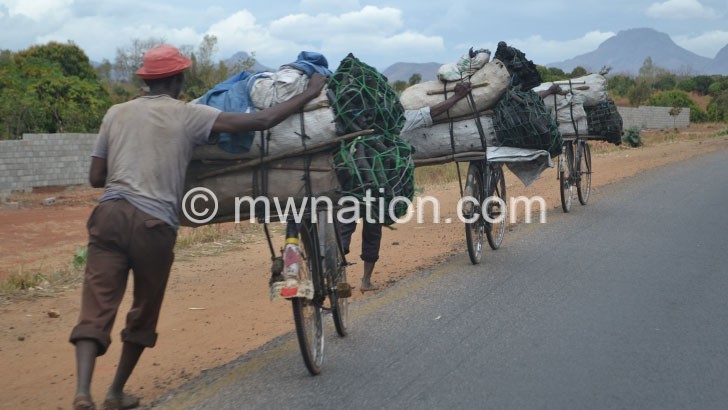Experts fault charcoal strategy
With five years remaining for government to finish implementing the 10-year National Charcoal Strategy (NCS), some experts have described progress as insignificant.
Others further say the strategy does not match the scale of charcoal led deforestation in the country.
NCS was developed in 2017 by Ministry of Natural Resources, Energy and Mining and runs up to 2027 with the aim of addressing critical issues of environmental conservation and household energy demands.

The strategy shows that more than 97 percent of households in Malawi rely on illegally and unsustainably sourced biomass such as charcoal and firewood for domestic cooking and heating energy.
But Centre for Environmental Policy and Advocacy (Cepa) executive director Herbert Mwalukomo said in an interview yesterday there is need for drastic change in terms of how the country is investing its energy and resources if progress is to be registered.
For instance, he pointed out that promotion of fuel-efficient stoves is being hampered by limited availability of such stoves on the market.
Mwalukomo said: “More efforts are needed to catalyse investments in fuel efficient stoves to enhance absorption.
“We do not have adequate energy solutions that will replace charcoal, especially for the urban dwellers. The challenge will persist if our priorities will remain the way they are.”
According to the 2018 Population and Housing Census, nine in 10 households in Malawi use firewood and charcoal for fuel.
Local cook stoves expert Giel Pooter said government needs to give a waiver on tax for efficient cooking stoves so that the larger population can afford them.
“Sometimes we have suffered heavy forest losses, and if only government was to offer a tax exemption on cooking stoves then we could have made a big difference in protecting the environment,” he said.
Ministry of Forestry deputy director Ted Kamoto said charcoal regulations will be signed soon, to enable people apply for a charcoal licence for production.
“Our plans are that we need to have at least one such institution in every district, especially in the cities of Lilongwe, Blantyre and Mzuzu where demand for charcoal is high,” he said





